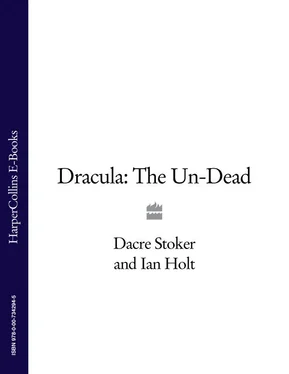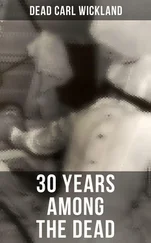“Put on the goggles!” Henri called out, placing his own large goggles over his eyes. Seward copied him. “And keep your mouth closed as we take off. Unless you enjoy eating flies.”
Henri’s son spun the propeller, and the engine grumbled slowly to life. The mechanic held up the tail section as Henri lurched the craft forward. This might have been a very bad idea , Seward thought, watching the machine move ever closer to a dangerous precipice. His jaw clenched in terror. But mere seconds before reaching the edge, the aircraft jolted unceremoniously upward, causing Seward to feel as though all of his internal organs had dropped into his legs. Scanning the coastline, he recognized the familiar shape of the Chateau d’If, the famous prison off the shore of Marseilles. It had taken him several hours to row from Marseilles to Villefranche-sur—Mer. And now, in a matter of minutes, they were soaring above it. He knew that Bathory, like all the un-dead, enjoyed the power of flight. Now he did, too.
Four hours later, they were in a farmer’s field in Vichy, refueling the monoplane. It took all three men to roll the barrel of petrol on its side from the barn out to the field where Henri’s aircraft had landed. After the exertions of standing the barrel up on end, it was Seward’s task to use the hand-pump mechanism to siphon the petrol from the barrel. The farmer held the hand pump’s hose firmly in the aircraft’s tank, monitoring its fuel level carefully. The fumes of petrol mixed with par— affin stung Seward’s eyes. Turning his head away, he caught sight of Henri walking around his aircraft, checking every bolt and the delicate plywood skin for any damage. Seward’s mind wandered, his attention drawn to the creeping shadow cast by the monoplane as the sun moved across the midday sky. The shadow of the aircraft’s wings resembled a large bat gliding low across the ground. It was then that the darkness overtook him again.
“Don’t stop pumping!” Henri called out to Seward. “We need to be airborne before the wind changes direction. We won’t have enough fuel to reach Paris if we’re fighting a headwind. I don’t know about you, mon frère. But I don’t want my destiny to be dying by crashing into some stranger’s barn.”
The petrol overflowed the aircraft’s tank. Henri motioned for Seward to stop pumping and cried out, “C’est tout!”
Seward snapped back from his dark thoughts.
After the plane came to a rolling stop in a horse farm’s grazing pasture, Seward untied himself, tumbled onto the ground, and kissed it.
“I am never going to fly again as long as I live,” he said shakily as the engine cut silent. He glanced up to see Henri Salmet dancing on the fuselage like a child on Christmas morn.
“From our last fuel stop, I have estimated we have flown two hundred and fifty miles,” he cried. “We did it!” Henri began to calculate aloud. “Now, how far would two hundred and fifty miles be from Paris?”
“I believe London,” Seward said somberly, thinking of his home as he retrieved his medical bag.
“Now that I know for certain she can reach the distance, I will fly to London and have the press meet me there to document that I will be the first man to cross the English Channel and fly from London to Paris. It will make me très fameux ! I must hurry into the city and purchase much petrol. How the devil am I going to get it out here?”
“Thank you for everything, Henri,” Seward said, forcing a smile.
“Bon chance, mon ami.”
Henri kissed Seward on both cheeks and pumped his hand.
Seward watched as Henri ran off toward the road. He knew this could well be the last time he’d set eyes upon his friend’s cheery face. He could think of no words more meaningful, so he kept his farewell simple and called out as he waved, “Good-bye, old friend!”
Seward turned in the opposite direction and checked his pocket watch. There was barely enough time to return to his room, gather his arsenal, and double back southward to the theatre. He would meet Bathory and her harpies fully armed. As the sun continued to set, he stopped to stare at the magnificent color in the heavenly sky. For too long, he had taken such grandeur in the natural world for granted, living alone in darkness. Tonight, he was glad, one way or the other, that he would at last bask beside God in His light.
Quincey arrived early at l’Odéon to purchase his ticket and took his time walking through the foyer of the old theatre. Each wall was adorned with busts, medallions, and portraits of actors. He drank them all in, recognizing a large portrait of Sarah Bernhardt mounted in a gold-leafed frame. Beneath the photo were her name and the title: La reine de l’Odéon. Quincey stopped at the photograph of Sir Henry Irving from his touring production of Hamlet. Irving was considered by most to be the greatest actor ever to voice Shakespeare’s prose. Most actors used their talent to affect the emotions of their audience through the strength of their own emotions. They watched for opportunities to tear the heartstrings of their listeners. In contrast, Irving approached a character from an intellectual perspective, taking into account the author’s intention and the character’s personal history. Though greatly ridiculed by other actors, Irving’s new approach captivated audiences. Much of the press said the same of Basarab; one reviewer had even raved that Basarab had inherited the mantle of “World’s Greatest Actor” from Sir Henry Irving.
Quincey became aware that he was still holding the envelope that he had carefully put together. He had purchased fine writing paper and paid a few francs for a local street artist to decorate the envelope with theatre masks in blood red. With fine calligraphy, an art he’d learned from his mother, Quincey addressed the envelope: To Basarab— from Quincey Harker, Esq. After seeing the pandemonium of adoring fans the night before, Quincey needed to make his envelope stand out from the countless other letters of admiration Basarab was sure to receive. He hoped that it would look important, and prayed it was not too much.
Quincey saw a short, elderly, uniformed man with a large set of keys in one hand and an electric torchlight in the other. Quincey knew this must be the head usher.
“Excuse me,” he said, extending the envelope toward him. “Could I ask you to deliver this backstage for me?”
The head usher read the name on the envelope, shook his head, and answered simply, “ Non. ”
Quincey’s mind raced. “Very well, I must speak to Monsieur Antoine at once.”
“André Antoine? He cannot be disturbed.”
“I think the theatre manager would like to know why Basarab won’t be performing tonight.”
The head usher studied Quincey. “What are you talking about?”
“Monsieur Basarab is expecting this letter. He is so anxious, I fear that he may be too distraught to perform if he doesn’t receive…”
“Very well,” the head usher interrupted, stretching out his hand. “I will take it to him.”
“Merci.” As Quincey gave him the envelope, the head usher’s hand remained outstretched until Quincey gave him some money. Then the man retreated. The lie had come so easily to Quincey.
Quincey turned to see that the wealthy and cultured, dressed in their best evening attire, had begun to pour into the opulent theatre. He knew that most of them were here to be seen rather than to see the play. Many of them shared his father’s view that actors were vagabonds and heathens. Hypocrites. His father was the worst of them; he seemed to have forgotten he was the son of a cobbler, a mere clerk at law fortunate enough to inherit the firm upon the death of its owner, Mr. Hawkins. The senior partner, Mr. Renfield, who had been destined to inherit the firm, had committed suicide in an insane asylum. Quincey suddenly felt a cold sensation as if the temperature in the room had dropped significantly. He glanced about, wondering where such a blast of cold could have come from, when a striking vision caught his eye. A woman had entered the foyer, towering over all others. The nearby crowd hurled disapproving glares. She was dressed like a man, in an extremely well-fitted dinner jacket.
Читать дальше












